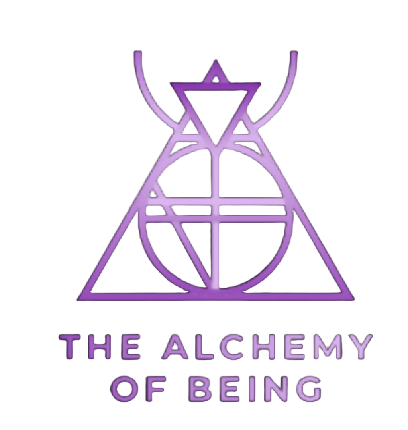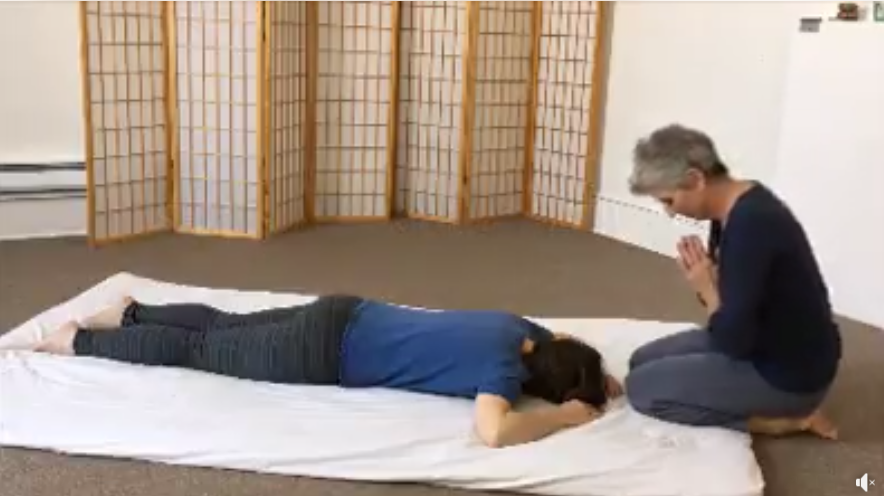MOD098 – Zen Shiatsu
Definition:
Zen Shiatsu is a Japanese form of acupressure massage therapy that incorporates principles of Traditional Chinese Medicine (TCM), Zen Buddhism, and holistic bodywork to balance the flow of vital energy or qi within the body’s meridian system and promote health and well-being. Developed by Shizuto Masunaga in the mid-20th century, this therapy integrates classical shiatsu techniques with a more intuitive and meditative approach, emphasising the interconnectedness of body, mind, and spirit.
Explanation:
Practitioners apply rhythmic pressure and stretches along specific energy channels or meridians, using their thumbs, fingers, palms, and elbows to stimulate acupoints and release energetic blockages or imbalances. By harmonizing the body-mind-spirit connection, they aim to facilitate deep relaxation, pain relief, and holistic healing. Zen Shiatsu distinguishes itself through its emphasis on the practitioner’s focused awareness and use of hara (centre of gravity) to connect with the client’s energy field.
The therapy goes beyond physical manipulation, incorporating elements of energetic diagnosis through touch, known as “listening with the hands.” Practitioners assess the client’s energetic state by feeling areas of tension, weakness, or imbalance in the body. This diagnostic approach allows for a highly personalized treatment that adapts to the client’s immediate needs.
Zen Shiatsu also emphasizes the importance of the client’s active participation in the healing process, often incorporating breathing exercises, gentle movements, and self-awareness techniques. This collaborative approach aims to empower clients to take an active role in their health and well-being, fostering a deeper understanding of their body’s energy systems and promoting long-term balance and vitality.
Evidence to Efficacy:
While scientific research on Zen Shiatsu’s efficacy is limited, there is some evidence suggesting its potential benefits:
Pain Management: A study published in the Journal of Alternative and Complementary Medicine (2008) found that shiatsu massage, including Zen Shiatsu techniques, was effective in reducing lower back pain and improving functional disability in patients with chronic low back pain.
Stress Reduction: Research published in the Journal of Holistic Nursing (2011) indicated that shiatsu massage, which includes Zen Shiatsu principles, significantly reduced stress and anxiety levels in participants.
Sleep Quality: A study in the Journal of Integrative Medicine (2019) showed that shiatsu massage improved sleep quality in patients with fibromyalgia, suggesting potential benefits for sleep disorders.
Digestive Health: While not specific to Zen Shiatsu, a systematic review in the Journal of Clinical Medicine (2020) found that acupressure, a key component of shiatsu, showed promising results in managing nausea and vomiting in various clinical settings.
Overall Well-being: A UK-based study published in BMC Complementary and Alternative Medicine (2011) found that shiatsu practitioners and clients reported a wide range of positive effects from regular shiatsu treatments, including improved relaxation, sleep, and overall well-being.
Governing Body:
Here’s an explanation of the organisations that provide training, certification, and oversight for Zen Shiatsu practitioners, focusing on maintaining high standards of professionalism and ethical practice in the field of bodywork and energy medicine:
The Shiatsu Society (UK), established in 1981, is the leading professional association for Shiatsu practitioners in the United Kingdom. It plays a crucial role in maintaining high standards of practice and ethics within the field of Shiatsu, including Zen Shiatsu.
International Shiatsu Association (ISA) is another key organisation that supports the practice of Shiatsu globally. ISA sets international standards for Shiatsu practice, ensuring consistency and quality across different countries and regions. They provide accreditation for training programs and schools that meet their global standards.
Specific Training Programs and Schools
Several schools and training programs in the UK are accredited by the Shiatsu Society and provide comprehensive training in Zen Shiatsu:
- The British School of Shiatsu-Do: Offers a range of courses from introductory workshops to professional practitioner training, focusing on various styles of Shiatsu including Zen Shiatsu.
- The Shiatsu College: Provides professional training courses that are accredited by the Shiatsu Society. Their curriculum includes in-depth study of Zen Shiatsu principles and techniques.
- The London School of Shiatsu: Offers a structured training program that covers the theoretical and practical aspects of Shiatsu, with a strong emphasis on Zen Shiatsu.
- The Shiatsu Society (UK) website offers a directory of qualified practitioners and information about Shiatsu.
- Zen Shiatsu and Wellbeing offers insights into Zen Shiatsu practice and its benefits.
What Good Looks Like:
In the context of Zen Shiatsu, here’s what a good experience should look like:
Initial Consultation: The practitioner should conduct a thorough assessment, discussing your health history, current concerns, and treatment goals. They should explain the principles of Zen Shiatsu and what to expect during the session.
The Session: You should remain fully clothed in loose, comfortable attire. The practitioner will use various techniques including pressure, stretching, and holding along meridian lines and specific points. Touch should feel firm but comfortable, never painful.
During the Experience: You may feel a range of sensations, from deep relaxation to subtle energy movements. The practitioner should maintain a focused, meditative presence throughout the session. You might experience a sense of connection between body, mind, and spirit.
Outcomes: You should feel a profound sense of calm and stress relief. Reduced Muscular Tension and Pain: Areas of discomfort should feel noticeably eased. Improved Circulation and Energy Flow: You might feel a sense of warmth or tingling as energy moves through your body. Enhanced Vitality and Well-being: Many clients report feeling more energised yet peaceful after a session. Greater Sense of Harmony and Balance: You should feel a heightened sense of overall balance and integration.
Long-term Benefits: With regular sessions, you should notice cumulative improvements in your overall health and well-being. You may develop a greater awareness of your body’s energy patterns and needs.
Holistic Approach: The therapy should address not just physical symptoms but also emotional and energetic aspects of your being. You should feel that the practitioner is treating you as a whole person, not just a set of symptoms. The experience should foster self-awareness and personal development. You may gain new insights into the mind-body connection and ways to maintain balance in your life.
Remember, Zen Shiatsu is a deeply personal experience, and outcomes can vary. A good experience should leave you feeling physically relaxed, emotionally balanced, and with a greater sense of connection to yourself and your body’s innate wisdom.
What to Ask a Practitioner:
Here are some key questions to ask when choosing a practitioner, along with desired answers:
How do you tailor treatments to individual needs?
Desired answer: “I conduct a thorough assessment before each session and adapt my techniques based on your current physical and energetic state.”
What can I expect during a typical session?
Desired answer: “Sessions are performed on a futon mat or low table. You’ll remain fully clothed while I apply pressure along meridian lines and specific points. I’ll also incorporate stretches and may use other techniques as needed.”
Can you explain how you integrate the principles of Zen and Traditional Chinese Medicine in your practice?
Desired answer: “I incorporate mindfulness and energetic awareness from Zen philosophy, while using TCM principles to assess and balance energy flow in the body.”
Related Therapies:
Related therapies to consider alongside Zen Shiatsu include other forms of acupressure massage, such as
Thai Massage: Combines acupressure, assisted yoga postures, and deep stretching to enhance flexibility and reduce muscle tension.
Tuina: A Chinese therapeutic massage that incorporates acupressure, stretching, and manipulation to balance the body’s energy and improve health.
Jin Shin Do (MOD82): A form of acupressure that combines gentle yet deep finger pressure on specific acu-points with simple breathing techniques.
As well as complementary modalities aimed at optimizing energy flow and holistic well-being, such as:
Acupuncture (MOD07): A traditional Chinese medicine practice that involves inserting thin needles into specific points on the body to balance energy flow (Qi) and promote healing. Acupuncture can complement Reiki by addressing energetic blockages.
Qigong (MOD102): A holistic system of coordinated body posture and movement, breathing, and meditation used for health, spirituality, and martial arts training.
Yoga (MOD182): A physical and spiritual practice that combines postures, breath control, and meditation.
 Skip to content
Skip to content

